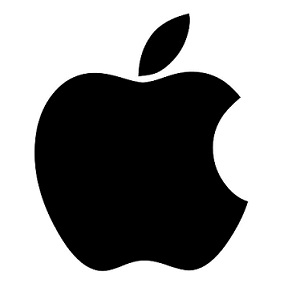 One of the key metrics/charts that I always look at when trying to judge Apple is the distribution of revenues for the company. Analyst Horace Dediu (a must follow @Asymco) updates several charts after each earnings update and here is the most recent one following the 2014 Q4 results:
One of the key metrics/charts that I always look at when trying to judge Apple is the distribution of revenues for the company. Analyst Horace Dediu (a must follow @Asymco) updates several charts after each earnings update and here is the most recent one following the 2014 Q4 results:
Clearly, Apple is all about iPhones at this point and that is likely to remain the case as long as the smartphone is at the center of our digital lives. I would also argue that as the ecosystem continues to expand, the revenues coming from the periphery will expand. In terms of hardware, that will translate into more sales of accessories from simple cables and cases to Beats headphones and a lot more. The even bigger sector, though, is likely to be services which some expect to grow to 20{01de1f41f0433b1b992b12aafb3b1fe281a5c9ee7cd5232385403e933e277ce6} of Apple’s earnings in the next two years. Apple will be able to be a part of its users lives not only in terms of entertainment (movies, tv, music, etc) but also in helping them live healthier lives, have a more enjoyable experience in their cars, gyms, etc. Here is another chart from Asymco:
Valuation (P/E of AAPL vs S&P500)
I’d argue that it’s very difficult to justify Apple trading so close to the S&P500 average valuation when it’s been growing much faster. I also consider the downside risk to be very small given the strength of Apple’s ecosystem. There are many different ways to compare valuations but here is one example from Morningstar’s numbers:
That seems difficult to justify given the fact that by some estimates, Apple is among the 10 fastest growing companies in the S&P500 in terms of revenue growth.
Potential Growth
Let’s agree on the fact that the main reason Apple is not trading higher is the belief that Apple will not be able to keep growing. Yes, that argument has been around for many years but it’s still the main argument for non Apple believers. Let’s look at Apple’s core to see if growth can persist:
–iPhone: I’d argue that while growth may slow down, in many ways, Apple faces less competition in the high end and that as the smartphone business continues to expand, so will Apple’s sales. Yes, they might continue to lose market share but as long as they hold on to their current users and continue adding more, they’ll be more than fine.
–iPad’s+MacBooks+Watches+TV’s: There seems to be a good opportunity here for Apple and while there is a wide range in the sales estimates for products such as Apple Watches, I tend to think that in the long run, these will do well and that while the upgrade cycle might be closer to what we’re seeing with MacBooks and iPad’s, those will continue to be strong businesses.
–Enterprise: An area that has been dominated mostly by Microsoft (MSFT) and Blackberry (BBRY) is now slowly but surely opening up to Apple and those big enterprise and government contracts are not only big dollars but they are also very stable revenues that will help a great deal to keep up the growth. The partnership with IBM is another clear sign of promising things to come.
–Services (App Store, Apple Pay, Music, Video, HealthKit, HomeKit, CarPlay, TV): Apple has been very smart in recently increasing its release speed for these ecosystems. With more developers and hardware builders than ever ready to start building around Apple’s ecosystem, the company can now expand its lead and continue to make its ecosystem the most valuable out there not only for developers, but also for users. As cars, home, clothes, TV’s and more gain the ability to interact better with our phones, Apple is likely to have a very valuable spot right in the middle of this ecosystem, even if only by continuing to sell (an increasing numbers of) its iPhones. There are also multiple other ways, such as a rumoured Apple web TV offering that could have a significant medium to long term impact.
Competition Is Crumbling
One main argument that I would hold for Apple is that it faces so little competition. For a company like Apple to face a decline, it would either need the entire market to mature or competitors to start eating away at its market share. I think it’s fair to say that the phone/electronics markets will continue to grow for the foreseeable future and digital services growth is likely to accelerate in the coming years. In terms of competitors, I guess it depends on how you look at each one:
–Google (GOOG): The search giant is clearly Apple’s top competitor. While it does not really compete on the hardware part (yes, Google sells some Nexus devices and owns Nest), it does compete in plenty of other spaces. The top area of course would be Android, the dominant (in terms of #users) mobile O/S. I think it’s fair to say that both have very different target markets and do not threaten each other at this point. The other more problematic area in my opinion is web services where Apple has needed to make several moves to compete with Google. Some worked well, others took some time (maps being a primary area) and in many others (Youtube, Search and ISP being a few examples), Apple has no answer. I don’t consider those a threat to Apple at this point, but they’re certainly a challenge.
–Samsung: When Apple CEO Tim Cook says that Apple’s focus is on making money by selling its devices, not selling ads, it obviously means that Apple needs to maintain its pricing power on those devices and for some time it looked like Samsung might create some issues. Samsung was the only company that seemed both willing and capable of competing on the very high end devices that Apple dominates. That did not last, though, and while the sales of iPhones have increased over time, Samsung’s Galaxy is under increased pressure:
–Xiaomi: Clearly, Xiaomi is a force to be reckoned with. Yes, it mainly operates in China but that is a major market for Apple and Xiaomi could obviously expand well beyond China. That being said, its products are not yet up to par with Apple, it (mostly) operates in one country and Xiaomi’s brand is not very well known in major Western markets, so to say that it is a threat to Apple in the near to medium term is a stretch in my opinion.
–Other Hardware Makers: A few years ago, you could say that companies such as Dell, HP, Compaq, Lenovo offered competition but they have all been losing ground.
So really, I do not see a major player that can take on and disrupt Apple at this point. That challenge is likely to become even harder over time as Apple’s rich ecosystem continues to grow both in terms of hardware and software… Overall, I continue to think that Apple remains an obvious pick in terms of upside vs. downside.
Disclosure: Long Apple (AAPL)
The post Apple ($AAPL) Remains A Screaming Buy appeared first on Intelligent Speculator.
SOURCE: Intelligent Speculator – Read entire story here.





